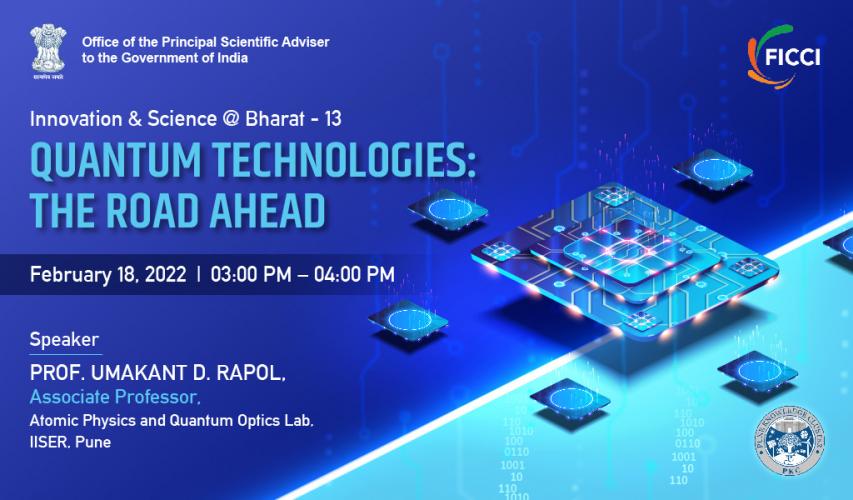
- A+
- A
- A-

Introduction
Quantum Frontier is one of the nine missions of PM-STIAC and it aims to initiate work in the understanding and control of quantum mechanical systems with a large number of degrees of freedom as one of the great contemporary challenges in fundamental science and technology. Read more about the mission. The next leg of Innovation & Science @Bharat series delves into industry-academia partnerships that are facilitating the mission.
About the talk:
The ability to control, manipulate and measure delicate quantum superpositions and entanglement has opened up enormous possibilities in direct technological applications to improve quality of life. Technological advances have made it possible to imagine and demonstrate computers beyond the classical world that would one day solve some of the toughest physical and mathematical problems which no Classical computer can solve. In addition, The existence of strong correlations and delicate entanglement in the quantum world would enable transmission of information in the most secure manner on one hand and on the other hand would enable measure certain physical quantities, including the most accurate time keeping devices -- with much higher accuracies and precision than what one can achieve classically.
This presentation will provide an overview of the basis on which quantum technologies are flourishing and the various directions along which these technologies are advancing.
Date: February 18, 2022
Time: 03:00 PM – 04:00 PM
To watch the event LIVE,
About the speaker:
Prof. Umakant Rapol is a highly experienced experimentalist in the area of atomic physics and quantum optics. His research interests include using ultracold atoms and ions for fundamental research and quantum technologies. His current focus is on using coherent quantum matter for quantum sensing, quantum simulations, and for precision metrology.
Prof. Rapol did his PhD from IISc, Bangalore in 2003 and joined as a visiting researcher at École Normale Supérieure, Paris and at University of Innsbruck. After spending about four years in Industrial R&D at GE Research Bangalore, he joined IISER Pune in 2009. He is currently an Associate Professor at the Indian Institute of Science Education and research, Pune and leads I-HUB Quantum Technology Foundation, a Section-8 company established at IISER Pune under the National Mission for Interdisciplinary Cyber Physical Systems of the Department of Science and technology (DST), Govt. of India.



